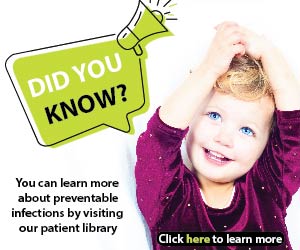Vaccination for women - providing protection as you move through life

For the young at heart
Life is full of surprises – When it comes to your love life, awareness and immunizations can help ensure that they’re all positive.
Why not get checked? It only takes sex with one person who is infected with an STI to be at risk. The same is true for everyone. That’s how things “go viral” – one person at a time. Making the smart decision to get tested for STIs does not suggest you have had many sexual partners.1
You can help stop the spread by knowing your own STI status, and by practicing safe sex every time. 2
Considering starting a family?
Give your baby the gift of immune protection.
As a pregnant woman, the immunity you have developed thanks to vaccinations and your previous exposure to some contagious illnesses is passed on to your baby. And this protection often lasts beyond pregnancy and into your baby’s first six to 12 months of life.3
Health Canada advises that all pregnant women, at any stage of pregnancy, should be vaccinated against the flu with the inactivated influenza vaccine during each pregnancy.
All pregnant women should also receive the combined tetanus toxoid, diphtheria toxoid, acellular pertussis (Tdap) vaccine during every pregnancy, regardless of whether they have had the immunization before.
Your immunization transfers high levels of antibodies to your infant to help protect him or her from pertussis infection during the first two months of life, when infection can be most serious.4
In your 30s or 40s?
Whether you are raising a family and/or heading out to work every day, be aware that some of the old infectious diseases – like measles, for instance – are coming back with a vengeance.
Do your part to keep our herd immunity strong! If you have not been vaccinated against common infectious illnesses, ask your healthcare provider what you may need. For instance, the three-in-one measles, MMR immunization will help protect you against measles, mumps and rubella (German measles), which are highly contagious.6
Keep your 50’s fun
If you were affected by chickenpox as a child, you should know that the varicella-zoster virus (VZV) that causes it can remain dormant in your system for many years. In some individuals, especially as we move past 50 years of age, the virus can be reactivated and result in herpes zoster (shingles). Vaccination can help you avoid this painful blistering rash, as well post-herpetic neuralgia (PHN), a chronic and debilitating condition that follows shingles in some individuals.7
Age 65 and over?
Influenza (the flu) also poses increasing risks as we age – while everyone over 6 months of age should get a flu shot yearly, 6 people over age 65 can choose a new enhanced influenza vaccine for extra protection.8
Streptococcus pneumoniae (pneumococcus) is a common bacteria, easily spread between people in close contact. Pneumococcal infection can cause several illnesses including bacterial pneumonia and middle ear infections. It can be serious or even fatal, especially in the elderly and the very young. Vaccination is recommended for all age groups.9
Planning to travel?
Whatever your age, immune protection is important for you and the people around you. Consult your health care provider – ideally 4 to 6 weeks in advance - to find out about any required vaccines at your planned destination or vaccines you should consider.
Talk to your healthcare professional today about what immunizations you may need, and visit Vaccines411.ca to find the vaccinating clinic nearest you.
Brought to you by Vaccines411.ca – know where to go for your vaccinations.
This information should not be used as a substitute for the medical care and advice of your doctor. There may be variations in treatment that your physician may recommend based on individual facts and circumstances.
Read more Vaccines411® Articles 
Sources
Note: the hyperlinks that direct to other sites are not continuously updated. It is possible that some links become untraceable over time. Thank you.
- Canadians For Choice website.
http://www.sexualhealthandrights.ca/ - What are the chances of getting an STI-STD? | STIs-STDs | SexualityandU website.
http://www.sexualityandu.ca/stis-stds/what-are-the-chances-of-getting-an-sti-std - Immunization before and during pregnancy.
http://pregnancy.sogc.org/health-before-and-during-pregnancy/immunization/ - Immunization in pregnancy and breastfeeding: Canadian Immunization Guide.
https://www.canada.ca/en/public-health/services/publications/healthy-living/canadian-immunization-guide-part-3-vaccination-specific-populations/page-4-immunization-pregnancy-breastfeeding.html - Update on pregnancy immunization
https://www.canada.ca/en/public-health/services/reports-publications/canada-communicable-disease-report-ccdr/monthly-issue/2018-44/issue-3-4-march-1-2018/article-5-update-immunization-pregnancy-vaccine-2018.html - Recommended Immunizations for Adults.
https://immunize.ca/recommended-immunizations-adults - National Advisory Committee on Immunization (NACI). Update on varicella. Can Commun Dis Rep 2004, 30: 1-26.
http://www.phac-aspc.gc.ca/publicat/ccdr-rmtc/04vol30/acs-dcc-1/index-eng.php - NACI Summary Influenza 2018–2019.
https://www.canada.ca/en/public-health/services/publications/healthy-living/executive-summary-literature-review-update-efficacy-effectiveness-fluzone-high-dose-fluad-trivalent-inactivated-influenza-vaccines-adults-65-older.html - Health Canada. Invasive pneumococcal disease. 2016.
https://www.canada.ca/en/public-health/services/immunization/vaccine-preventable-diseases/invasive-pneumococcal-disease/health-professionals.html



